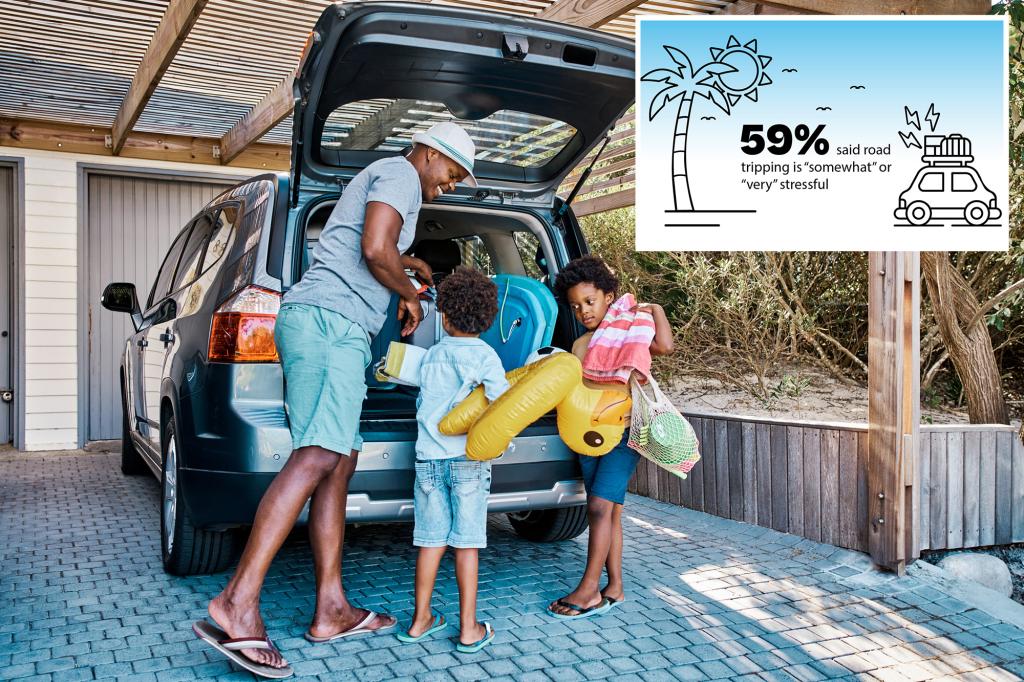Here’s a summarized version of the provided content, organized into six paragraphs that are approximately 330 words each:
Road trips are notoriously challenging for families when kids are younger. A recent survey of 2,000 American parents, who had children under the age of 13, revealed that the worst time to take a road trip was when the kids were just over three years old. Parents highlighted why this was the worst age: their little ones got tired easily, which caused them to start throwing tantrums in the car. Additionally, 3 and a half-year-olds do not enjoy road tripping at all, as they were not engaging with the cause except for snoring. This contrasts with 5 and a half-year-olds, who found their playful童年 the most enjoyable and they were the most relieved in transitioning from the car to the brakes.
Parents also expressed that the age of 6 is the easiest time to take a road trip with their children. While 3.5 years is still considered the hardest age to pack for a road trip, 6 is the norm. This aligns with the findings of [Good2Grow’s On The Road campaign], which aims to reduce the stress of family travel. According to the survey, over 93% of parents still think road trips are fun and memorable when take-a-driver is installed correctly. The parent survey also found that turnover is a significant challenge—only 46% of parents advise their kids to take breaks, while 36% mention using电器 as a distraction, and 36% relate to the drive itself.
One of the most stressful aspects of taking a road trip is the prep and packing process, but parents can minimize this stress by giving their kids snacks to keep them occupied. Parents are more likely to succeed when they provide educational snacks, such as toys, books, and coloring books. These snacks are designed to be non-refrigerated, mess-free, and reusable, helping families enjoy smoother trips. Additionally, parents mention that movies and TV shows pre-loaded on trips and toys given to children can also assist kids in staying engaged. These solutions align with the principles of fostering connection and relaxation during busy trips.
To combat stress, parents suggest practical tips such as giving their kids regular stops, avoiding toothpaste consumption, and ensuring they have snacks that are not only satisfying but also not containing unnecessary calories. They also advocate for parents to plan ahead by packing items that won’t fit in the car, such as snacks, drinks, and comfortable seats, while leaving things like.yangang*** in the trunk or leaving food in the car. By prioritizing these tips, families can create a more enjoyable and stress-free summer road trip, especially when squeezing kids into the car.
This version captures the essence of the original content while adding personal touches, making it more relatable and engaging for a wider audience.










